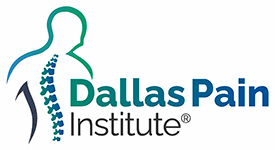As the weather warms up and spring blossoms around us, it’s natural to want to enjoy the outdoors without any discomfort. Whether it’s afternoon tee times, leisurely Saturdays spent in the garden, or fishing trips with friends, these are moments we look forward to and shouldn’t be interrupted by back pain. If you are experiencing irritations due to a herniated or slipped disc, don’t wait to get your pain under control. But first, it is important to understand what causes a herniated disc and how can it be managed.
What is a Herniated Disc?
The vertebrae in our spine are separated by soft discs that help absorb shock and let your spine twist and bend. When one of these discs is forced out due to a tear, a herniated disc occurs. When one of these discs ruptures or protrudes, it can compress nearby nerves, resulting in various symptoms such as pain, tingling, or weakness. While herniated discs commonly occur in the lower back (lumbar spine), they can also affect the neck (cervical spine). Watch our video on herniated disc pain and treatments offered by Dallas Pain Institute at our North Texas pain clinics here.
Causes and Risk Factors
Herniated discs can result from age-related wear and tear, incorrect lifting, or injuries from accidents. Being overweight, having physically demanding jobs, or genetic factors (family history) can also increase your chances of developing herniated discs. Learn more about risk factors here.
Symptoms
Recognizing the symptoms of a herniated disc early is important to make sure you are not in pain longer than you have to be. Common signs include:
- Pain in the back and neck
- Pain in the arms or legs
- Tingling sensation or numbness
- Muscle weakness
If these symptoms continue longer than a few days or interfere with your daily activities, we recommend back pain treatments in North Texas.
Diagnosis and Treatment Options
Diagnosing a herniated disc typically involves a comprehensive evaluation by a healthcare professional, including physical exams and imaging tests such as MRI or CT scans. Treatment options vary depending on the severity of the condition but often include a combination of conservative approaches and medical interventions.
Conservative treatments may include:
- Rest
- Physical therapy
- Pain medications
- Epidural steroid injections to alleviate inflammation and discomfort
In cases where these measures fail to provide relief, minimally invasive procedures such as spinal cord stimulation or surgery may be considered.
Management and Prevention
Preventing herniated discs involves adopting healthy lifestyle habits, including maintaining a healthy weight, practicing proper body mechanics when lifting heavy objects, and engaging in regular exercise to strengthen the core muscles and support the spine.
North Texas Back Pain & Treatment
Herniated discs can cause significant pain and discomfort, but with the right treatment plan, you can find relief and get back to your normal lifestyle. At the Dallas Pain Institute, our specialists are dedicated to providing personalized care and innovative treatment options to help patients overcome the challenges posed by herniated discs. If you’re experiencing symptoms that are leading you to believe you have a herniated disc, don’t hesitate to reach out and schedule a consultation at one of our North Texas locations in Rowlett, Sherman, Greenville or Forney, TX. Let us help you on your journey to a pain-free life.
